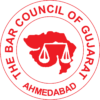Note – This article is authored by Vishal Awtani, Founder, Gray Jay Law and Mr. Abhinav Awasthi, Intern at Gray Jay Law, currently pursuing his 4th year of B.A LL.B in Pune University.
AI tools for Canada spousal sponsorship : In an effort to enhance efficiency and support for Family Class spouse and partner sponsorship applications, the Immigration, Refugees, and Citizenship Canada (IRCC) unveiled two advanced AI tools on May 30, 2024. These innovative analytics tools are designed to streamline the processing of overseas spousal and partner applications, aligning with IRCC’s commitment to leveraging technology while maintaining program integrity. Here’s how these cutting-edge tools are set to transform the Canadian spouse sponsorship process.
How Do the New IRCC AI Tools Work?
The new AI tools are designed to optimize both parts of the spousal and partner sponsorship applications:
- The sponsorship part
- The principal applicant part
Sponsorship Tool
The Sponsorship Tool assesses the sponsorship component of the Outside Canada Spousal Sponsorship application to identify routine cases that can be automatically approved. This tool follows a specific decision-making model:
- If the sponsorship part of the application is routine and meets the pre-determined eligibility rules, the case is automatically approved.
- If the sponsorship part of the application does not meet the pre-determined eligibility rules, it is sent to an officer for manual review.
Principal Applicant Tool
The Principal Applicant Tool focuses on identifying routine applications for streamlined processing. It determines if the principal applicant is eligible and then forwards the file to an officer for final admissibility and case determination:
- If the principal applicant’s eligibility is routinely assessed, the tool automatically approves the applicant’s eligibility and forwards the file for an officer’s admissibility evaluation and final decision.
- If the assessment is non-routine, the file is forwarded to an officer for manual review of eligibility, admissibility, and ultimate determination.
Benefits of the AI tools for Canada spousal sponsorship
These AI tools offer several advantages:
Improved Processing Times
By automating the approval of routine Family Class applications, the time taken for eligibility decisions is significantly reduced. This allows applicants to pass the eligibility stage faster and receive decisions on their Spousal Sponsorship applications much sooner.
Optimized Use of IRCC Resources
Automation enables IRCC officers to concentrate their expertise on more complex cases, ensuring a more efficient allocation of resources. This helps in managing workloads better and improving overall processing efficiency.
Impact on Application Processing
In line with the deployment of these new capabilities, IRCC has completed an algorithmic impact assessment (AIA) to evaluate how these tools will affect application processing. The AIA classified the effect level as “moderate” and outlined steps to mitigate potential risks. This assessment underscores IRCC’s commitment to implementing data-driven technologies responsibly, adhering to privacy standards and human rights protections.
Privacy and Ethical Considerations
The IRCC emphasizes that these AI tools assist in the processing and do not have the authority to refuse or recommend the refusal of any applications. All final decisions are made by IRCC officers, ensuring that the human element remains central to the decision-making process. This approach helps in maintaining transparency and accountability within the immigration process.
Understanding the Context and Implementation
To fully appreciate the impact of these new AI tools, it is important to understand the broader context of their implementation and the specific details of how they operate within the IRCC framework.
Background and Development
The development of these AI tools is part of IRCC’s ongoing efforts to modernize and streamline immigration processes. Over the past few years, IRCC has invested in various technological advancements aimed at improving service delivery and client satisfaction. The introduction of AI into the processing of spousal sponsorship applications represents a significant milestone in these efforts.
The AI tools were developed through a collaborative process involving immigration experts, data scientists, and technology developers. This multidisciplinary approach ensured that the tools are both technically robust and aligned with the practical needs of the IRCC’s operations.
Testing and Validation
Before their official rollout, the AI tools underwent extensive testing and validation to ensure their accuracy and reliability. Pilot programs were conducted to evaluate the tools’ performance in real-world scenarios, allowing the IRCC to refine their algorithms and decision-making models. These pilot programs provided valuable insights into how the tools could be optimized for efficiency and effectiveness.
The results of these pilot programs were promising, demonstrating that the AI tools could significantly reduce processing times for routine applications without compromising the quality of decision-making. This success paved the way for their broader implementation.
The Role of Technology in Immigration
The integration of AI into the spousal sponsorship process is part of a larger trend towards the digital transformation of immigration services. As global migration patterns continue to evolve, immigration authorities around the world are increasingly turning to technology to enhance their operations.
Enhancing Client Experience
One of the primary goals of this digital transformation is to improve the client experience. By leveraging AI and other advanced technologies, immigration authorities can provide faster, more efficient services to applicants. This is particularly important in the context of spousal sponsorship, where delays in processing can have significant personal and emotional impacts on applicants and their families.
Ensuring Program Integrity
While speed and efficiency are important, it is equally crucial to maintain the integrity of immigration programs. The IRCC has designed its AI tools to support, rather than replace, human decision-making. By automating routine tasks, these tools free up officers to focus on more complex cases that require careful consideration and judgment.
This approach helps to ensure that all applications are processed fairly and accurately, upholding the principles of transparency and accountability that are central to the IRCC’s operations.
Future Prospects: Expanding the Use of AI in Immigration
The successful implementation of AI tools in the spousal sponsorship process opens up new possibilities for their application in other areas of immigration.
Broader Applications
Given the positive outcomes of the current AI tools, the IRCC may explore their use in other types of immigration applications, such as economic immigration, refugee claims, and citizenship applications. Each of these areas presents unique challenges and opportunities for the use of AI to enhance processing efficiency and client support.
Continuous Improvement
The IRCC is committed to continuous improvement and will likely continue to refine and expand its use of AI and other technologies. This involves ongoing monitoring and evaluation of the AI tools’ performance, as well as regular updates to their algorithms and decision-making models.
Collaboration and Innovation
The development and implementation of AI tools require collaboration between various stakeholders, including government agencies, technology providers, and academic institutions. The IRCC’s experience with AI highlights the importance of such partnerships in driving innovation and achieving successful outcomes.
Challenges and Considerations
While the benefits of AI in immigration processing are clear, there are also challenges and considerations that must be addressed.
Ethical Concerns
The use of AI in decision-making raises important ethical questions, particularly regarding bias and fairness. The IRCC is aware of these concerns and has taken steps to ensure that its AI tools are designed and implemented in a way that minimizes bias and promotes fairness.
Data Privacy
Data privacy is another critical issue. The IRCC has implemented stringent data protection measures to safeguard applicants’ personal information and ensure that it is used responsibly and transparently.
Adaptation and Training
The introduction of AI tools also requires adaptation and training for IRCC staff. Officers need to be trained on how to effectively use these tools and interpret their outputs. This training is essential to ensure that the benefits of AI are fully realized and that human oversight remains a central component of the decision-making process.
Conclusion – AI tools for Canada spousal sponsorship
The introduction of sophisticated AI tools marks a significant step forward in the Canadian spouse sponsorship process. These tools are set to enhance processing times, optimize resource use, and improve the overall efficiency and effectiveness of IRCC operations. By maintaining a balance between technological innovation and human oversight, the IRCC is paving the way for a more responsive and streamlined immigration process.
As IRCC continues to innovate and incorporate advanced technologies, applicants can expect a more streamlined and responsive application process, reinforcing Canada’s commitment to supporting families and partners in their immigration journey. The successful implementation of these tools also sets a precedent for their potential application in other areas of immigration, promising a future where technology and human expertise work together to deliver better outcomes for all stakeholders involved.
By addressing the challenges and considerations associated with AI, the IRCC demonstrates its commitment to ethical, transparent, and efficient immigration processing. This approach not only benefits applicants but also enhances the overall integrity and effectiveness of Canada’s immigration system.
Note – This article is authored by Vishal Awtani, Founder, Gray Jay Law and Mr. Abhinav Awasthi, Intern at Gray Jay Law, currently pursuing his 4th year of B.A LL.B in Pune University.








AI and Canadian Immigration: Opportunities, Challenges, and Ethics - Gray Jay Law
[…] Immigration, Refugee and Citizenship Canada (IRCC) is increasingly automating its services due to the rise in applications for work permits, study […]